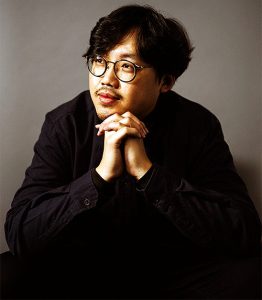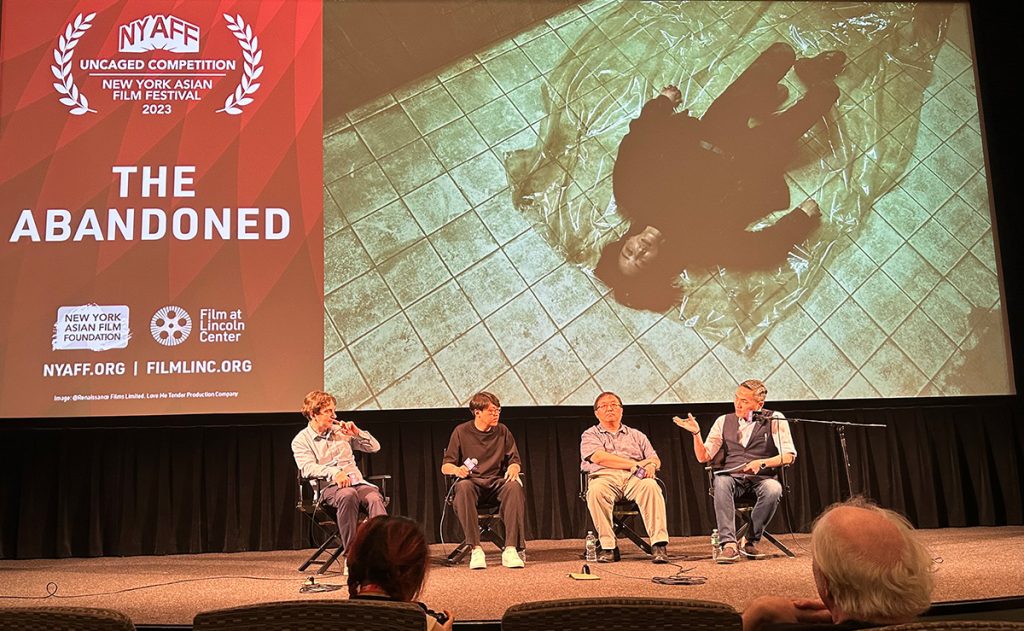The Uncaged Award for Best Feature Film Competition, according to the folks who operate the New York Asian Film Fest, which is also known as NYAFF, shines a spotlight on feature filmmakers whose singular cinematic visions should be internationally heralded, and celebrates their passion, imagination, and willingness to take risks. THE ABANDONED, which played July 26 at Film at Lincoln Center’s Walter Reade Theater, was one of nine nominated for this year’s Uncaged Award. It is directed by Taiwanese Director Tseng Ying-ting
According to NYAFF publicity, the film masterfully blends police procedures with psychological themes and social issues into a transcendently insightful examination of the human psyche. Painting the world of THE ABANDONED with haunting cinematic strokes, deftly reflecting the modern malaise of a world gone wrong, the film also offers a shining glimmer of hope. 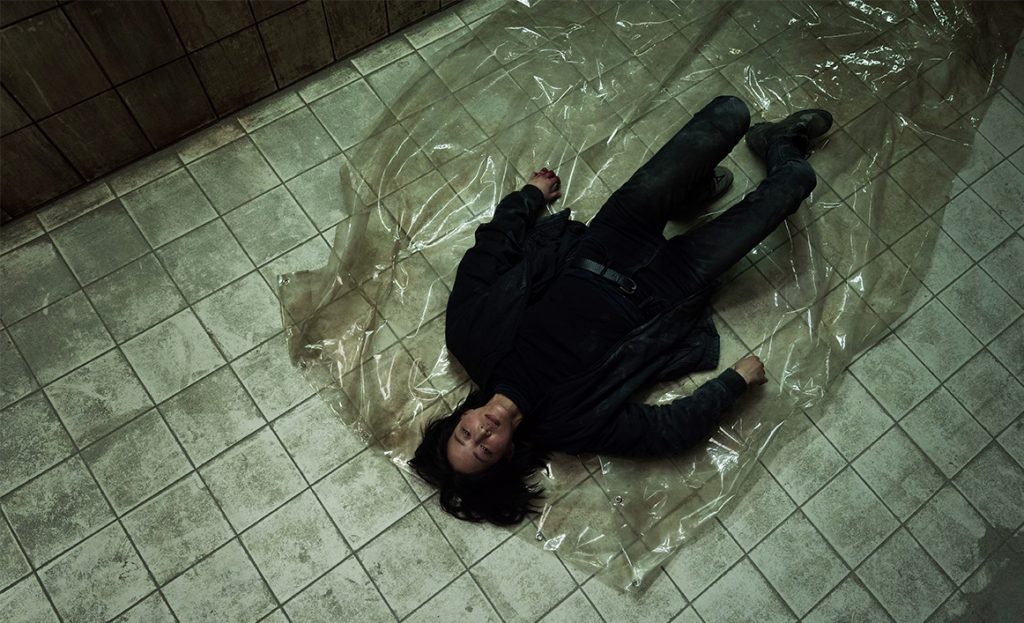
The cinematography and production values were luxurious.
However, several times throughout this film this reviewer was startled by byzantine plot twists and turns. The acting during many of these scenes seemed over the top and at times frenetic.
Verisimilitude regarding police culture and police officers was weak and implausible, marring the story telling and opening up this writer’s imagination for what appeared to be darkly comedic slapstick, especially for several grisly fighting and murder scenes.
The slapstick made the police appear as if they were members of a Keystone Cops squad.
For example, in one scene, Detective Wu Jie is pointing her gun at a prostitute-killing, serial-murdering suspect whom she took into custody. She tells him she is ready to shoot him if he resists.
Suddenly, he resists, setting off a hell of a fight. The suspected killer is pummeled by the detective, her assistant and another character. In the scene, all involved formed a swirling human ball of violence rolling and tumbling about on the floor.
Poof!
In the blink of an eye, the killer suddenly and incredulously has Detective Wu Jie’s weapon in his hand and is pointing it at her and the others who are now begging and trying to reason with the killer that he should put the gun down.
Because of more incredulous scenes similar to what is described above, this reviewr can’t rate this film on a regular movie review scale. After the Q&A postmortem in Walter Reade Theater July 26, audience members received slips of paper to rate the film, 1-5. I declined. My mind was swimming and I was trying to sort out what I had seen, heard and viscerally experienced from the movie and the Q&A.
I had either seen one of the best movies at the festival this year and was unable to appreciate its merits. Or I had seen one of the worst. Cinema history has a list of respected movies that got bum reviews at some point but withstood the opprobrium over time. Serious reviewers hate being on the wrong side of history.
I believe if the filmmakers had focused on police officers and police culture as microcosms and that had the verisimilitude had been rendered on the same level as the other superb aspects and aesthetics of the film, THE ABANDONED would be an irresistible beast of a film to see. The analogizing of a police department and police culture to comment on the modern malaise of a world gone wrong would have been better.
It also has to be stated that The ABANDONED has received cinematic praise in competitions and festivals preceding its screening at this year’s NYAFF.
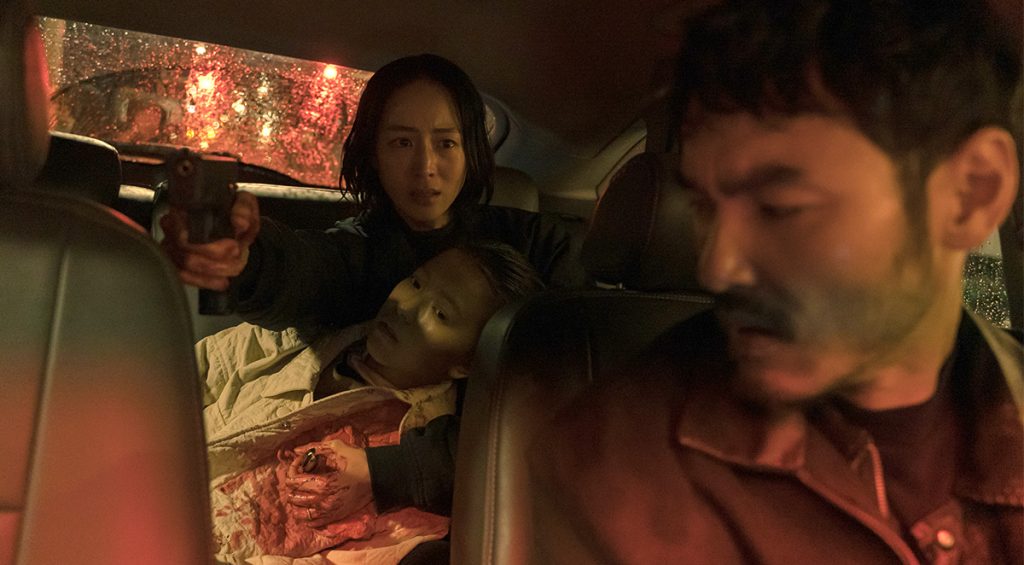
Detective Wu Jie pointing her gun at a serial killer (who can’t be seen in this picture) while holding onto the knife that was thrust into the heart of her junior assistant by the killer. The driver is You-Sheng Lin who is inadvertently helping with the investigation.
End Part 1
Prelude to the Q&A
On a New Year’s Eve in a Taiwanese town, a female corpse waters washes up on a beach. Her heart and one finger are missing. The event literally stops police detective Wu Jie, who was nearby when the body was discovered by passers-by, from blowing her brains out with her service pistol. Subsequently, like a psychic defibrillator, the discovery literally jumpstarts her salvation.
Detective Wu Jie is still grieving the suicide death of her lover who shot himself in the head with her semi-automatic hand gun.
The dead female was murdered, of course. However, forensic and law enforcement officers are stymied in their investigation. In the meantime, they get an anonymous call that complicates the case even more: The person who dumped the body was not involved with the homicide. Lin You-sheng, who makes a livelihood as a broker assisting illegal emigrants, becomes a person of suspicion after a second female corpse is found in a factory. The dead women were recent emigrants who had sneaked into Taiwan.
{Reviewer’s Note: Later on it is learned that Lin You-sheng buried the body in a mountainous area and the swirling waters of an unexpected torrential rain washes away soil that was keeping the body secured. Lin You-sheng, however, didn’t kill her. He was trying to cover up the death because of the vexing problems and issues that can arise from public disclosures of a police murder investigation. He was concerned about that effecting his business. He also was faintly concerned that it could create problems and tensions for the struggling illegal newcomers with whom he was working with.}
And, yet, at the same time, Lin You-sheng was upset that he couldn’t contact his girlfriend, Waree, who was not responding to his cell phone calls. Detective Wu Jie eventually asks Lin You-sheng to identify the newly found body and it turns out to be Waree, making Lin You-sheng the prime suspect in the serial murders.
Succinct analyses from this reviewer who learned a lot about policing protocols and crime forensics as a police and crime reporter who use to hang out with lots and lots of cops and also is a published author: Detective Wu Jie never should have been allowed to investigate the murders for a number of reasons involving conflicts of interests, especially because of her lover’s suicide and because she violated several basic rules and regulations expected of law enforcement officers to keep them from contaminating their investigations because of personal woes.
If not suspended, she should have been forced to turn in her shield and gun. Same goes for her boss. Same goes for her assistant. And so on … and so forth.
End Part 2
Selected Moments from the Postmortem Q&A. Edited for Style and Context.
Director: Ying-ting Tseng
Cast: Ning Chang (sister killed), Ethan Juan (works with immigrants), Chloe Xiang (junior detective), Sajee Apiwong
Producer: Tang Tsai-Yang, Ning CHANG
Languages: Mandarin, Taiwanese, Thai with English Subtitles
2022, 128 minutes
Nominated for this year’s Uncaged Award for Best Feature Film Competition
A Succinct Who, What, Where, When, Why & How Q&A for THE ABANDONED
The Moderator tells the audience that the original Chinese title for Director Ying-ting Tseng’s film was NO TRACE OF THE HEART.
The Moderator said he believed both titles – NO TRACE OF THE HEART, THE ABANDONED – were right for the thematic essence of the film which would make film less representative of a crime genre and more existentialistic about the grieving process of losing someone you love who dies and not due to natural causes. The abandoned are loved ones who feel left behind after the deaths.
{Reviewer’s Note: Near the end of the Q&A and audience partication, the film’s producer addresses the moderator’s comments about the original name for the film: “When we were developing the script, the origin title for this film …THE WILD GHOSTS WITH LONG SOUL.}
The Moderator analogizes with an Elvis Presley quip that didn’t work for this reviewer. “So when you send a letter out and the post office will stamp on the letter saying that this, you know, this person is not at this particular address, like Elvis saying that, return to sender. So that’s the reason why we have two different set ups for the title.”
The Moderator, talking directly to Director Tseng Ying-ting, said, “We met five years ago, and I, the last thing I remember asking you was, what are you working on now? And you said, a screenplay about a police woman, right? So can you tell us where you were at with the idea at that point when we talked and soup to nuts, how it developed with all these different elements.”
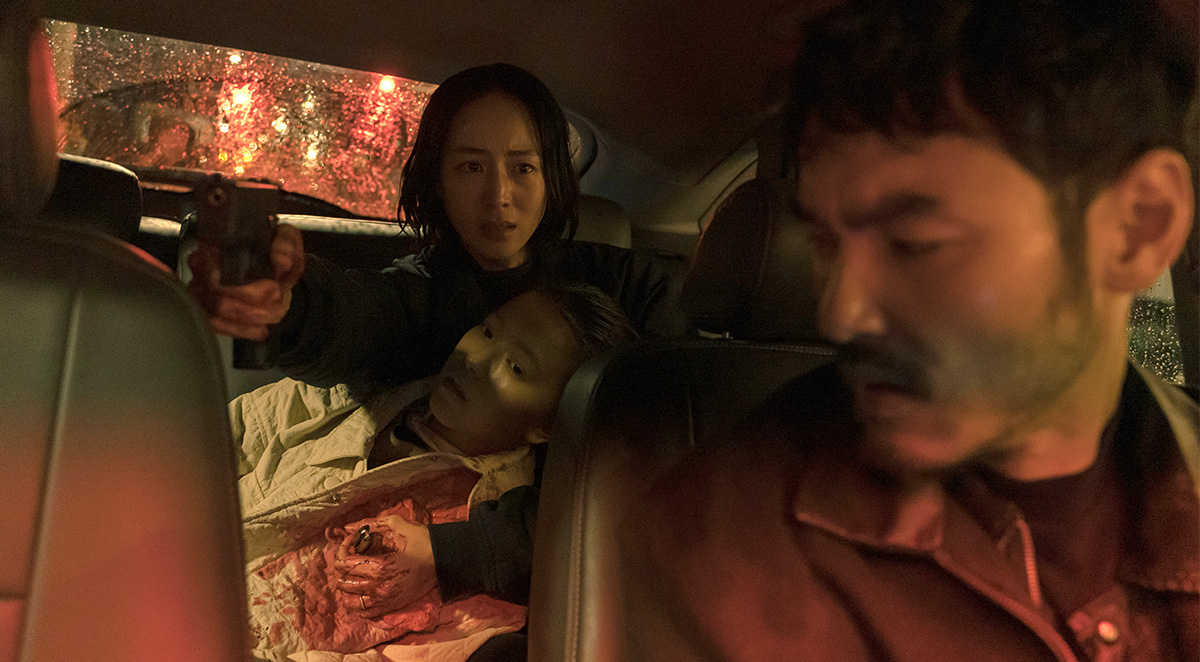
Detective Wu Jie pointing her gun at serial killer (who can’t be seen in this picture) while holding the knife in her junior partner’s heart.
Director Tseng Ying-ting said one of the main ideas for his film was that he wanted “to portray stories about female detectives. That’s all I knew at the time. I love detective stories.” He said he has family members who are involved with or have law enforcement experience but didn’t say if he consulted any of them for their expertise – not did he say if any were female.
The film was, he said, very much about this either fragile male character, and it’s all about him. “So I thought that for my next film, I really want a female character; everyone’s fragile and tough.”
The Moderator replied that he wanted the director “to talk more about the fragile and tough, but first, producer Tang, this is your first time collaborating together. Just the first time as producer. Can you tell us how you came to work together? Have you done these kind of police (stories) before?
Producer Tang Tsai-Yang said his director, Tseng Ying-ting” is one of the most promising directors currently I want. After I read the script, I was very touched and found the story very, very interesting. And the reason for why is because the story itself is not very Taiwan specific.”
“If you really think about the illegal, foreign migrant workers, it is an issue that you can see around the world. For example, you have migrant workers from Southeast Asia go to Japan, go to Taiwan, go to Singapore, and go to Korea. And you have, migrant workers from Central and South America migrating to the North America to find a job and find a better life.”
Producer TANG Tsai-Yang’s comments about illegal, foreign migrant workers sounded like what this reviewer believes was a potpourri, hodgepodge device. That is, work a topic into plot details to make the movie more relevant to real-world issues and, of course, especially those that may be attractive lures for audiences.
This reviewer believes that the filmmakers never interviewed any female detectives nor any law enforcement folks about their jobs. Thus, they wrote off the top of their heads about things they didn’t know much about rather than deep diving into research. “You also have the migrant workers from North Africa and also eastern European countries migrating to Western European countries to make a living,” Producer TANG Tsai-Yang said. “So I do think that this is a very universal story, and I thought that I need to do my best to find all the money and the investments that we need to really actualize the director’s vision.”
Moderator: “Well, we have a bunch of questions to get to. But just going back to what you were saying, about having a fragile man and …. also a tough woman. Now, for those of you who haven’t seen his last film, which we showed last time, you can see similar motifs. I’m gonna say it right now. Why do you put your characters through the ringer?”
Director: “So I do think that this is something that I’ve been examining all my life and it is my motif, something that I want to examine most, which is about how can you say goodbye to the people you love the most. So this sense of love and loss will be something that you can see in the last version, also in this film, THE ABANDONED.”
“But I do think that the attitude that I took to make these two films are quite different. I think maybe because I’m getting more mature and getting older, and also the way I see things a little bit different. So here are differences in terms of how I portray or dictate and examine the motifs of love and loss, differently between these two films that I do think that this is something I will continue making, going forward.”
“But hopefully each time I will talk about love and loss differently. Yes, definitely, don’t stylize that. Okay, it’s getting late, but we have a lot of good questions. What I want us to get to first is, and you, producer too, we touched on this a little bit. What brought about the decision to focus on this aspect of society, the migrants?”
{Reviewer’s Note regarding the Producer’s comments below about so-called illegal migrant workers: He overlooks or sidesteps the political realities of immigration, such as, that legions flee for their lives from their homelands.}
Producer TANG Tsai-Yang: “So from perspective as a producers, as I mentioned, that this is a topic that’s, and I do think that for the director, he has been making films about this particular, group, for migrant workers, people who are disadvantaged as a result of their roles and their lives experience. And I do think that this is something that you can see in all developing, I’m sorry, all developed countries.”
“And even though that in terms of its package, it is packaged as a genre film, but I think that the subject matter, it is something that we take very seriously, which is to really talk about the group that is at the bottom of society that is so marginalized and so disadvantaged with the packaging of the genre film.”
“So now, so for this particular disadvantage group, the illegal migrant workers or just migrant workers in general, I really admire their courage to be able to just pack their bags and go away for hundreds of miles to a new countries without knowing the language or that very little language that, you know, and very different environment, very different religions and that kind of, that vast for us living far away from home.”
“But at the same time trying to pursue your dreams and trying to hopefully make it big in terms of, the financial, in terms of money and also financial well beings, those are the reasons why I found this particular group especially interesting. And the groups that I want to portray and want to examine.”
Moderator: “So did you intend for the film to have a foreign audience? And if so, how did that affect the writing process? I think that far to make that happen will be the and people in Taiwan, I would say in general, tend not to have very clear understanding or very often with group of people, migrant workers, even though that they are among them.”
Director: “I do think that they have this sense of distrust and resistance towards this particular group of people. So I do think that for me as a director is how can I find a way to find compelling storytelling strategies to get them {audiences} into really looking at the challenges and the difficulties of this group of people, the challenges, the difficulty they face living in Taiwan, working among them.”
“So I want to, find a way in for them so that people will hopefully touch them so much so that they would like to share with, share with other people in the community. So that is something that I already had the intention right from the beginning, and I try my best and I strive for, making that happen through the storytelling of this film.”
Moderator: “Great. We just have time for a couple more questions, but I know producer Tom mentioned that it, it was not, I think you said, it was not a Taiwan specific story. Am I assuming right that you were also coming to this project, thought of it to get and hoping that you could have an international audience as well?”
Producer: “I do think that when we start thinking about this and discussing this with, Zen, we already talked about this as something that is very universal. Something all people around the world can relate to. And I do think that if we have the chance to show this film internationally through film festivals or we get to have the film distributed, I do think that you will touch all audiences around the world and we can really blur the boundaries of nationalities. And this is a very universal story.”
“And I want to add that, when we were developing the script, the origin title for this film, it is actually called, THE WILD GHOSTS WITH LONG SOUL. And that’s the little translation of the Chinese title. And I do think that that really captured the essence of the experience of these – not only migrant workers – but also illegal migrant workers as that these are wild ghosts, that it’s something, something that so invisible.”
Moderator: “So we’re out of time, but I must read this comment (from an audience member). “I watched more than 30 films in this festival and this is one of the best. I’ve from Thailand. I want this film to show in my country. Not a question, just thank you so much for making this film. I want to watch it again and cry again.”
End of Part III
Gregg W. Morris can be reached at gregghc@comcast.net, profgreggwmorris@gmail.com
